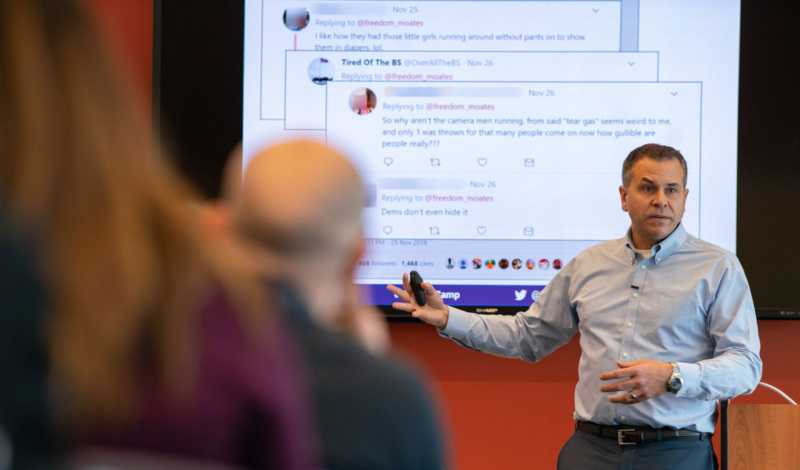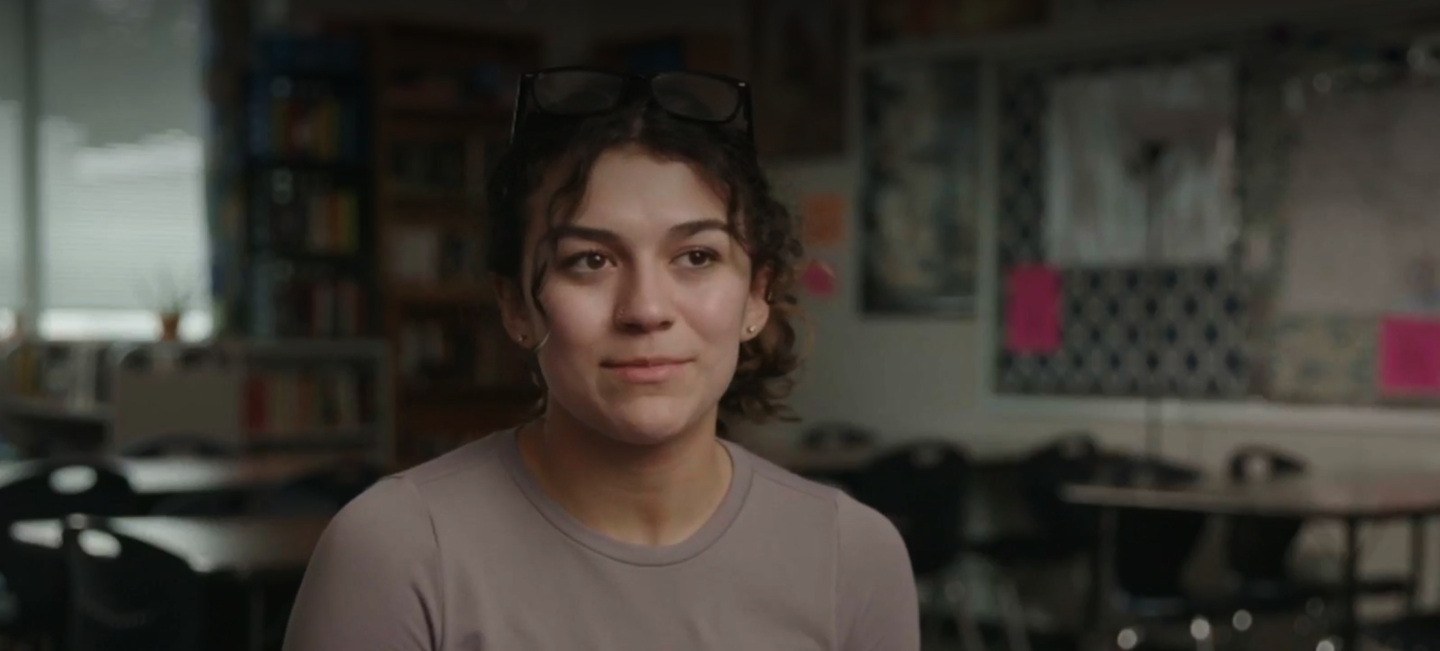



When given the choice of researching a difficult topic or an easy one, Ana Sesma, a senior at Mill Creek High School in Hoschton, Georgia, always chooses the toughest option.
Erin Wilder, her English Language Arts teacher, said this trait is one of the reasons why Sesma stands out among her peers and why she nominated her for the 2023 Gwen Ifill Student of the Year Award.
As part of a regular news literacy assignment, Wilder’s students pick a topic and analyze articles about it. Earlier this year, Sesma decided to read about the recent mass shooting at Michigan State University. “Choosing to read about such a heavy topic when lighter and more insubstantial articles were available shows an understanding of not just its importance, but of the global nature of the story as well,” Wilder said.
In other classroom activities, Sesma also pursued studying complex issues. For example, she evaluated articles that connected teens’ financial status to their mental health and posed thought-provoking questions to classmates, demonstrating her concern for her peers and awareness of issues in the world beyond her high school.
The impact of online culture on young people is one of those issues. “Social media’s pretty toxic for body image and for mental health,” she said. Viral posts create unrealistic expectations, and “it’s really easy for you to spiral down that hole.”
Sesma knows that news literacy skills help her navigate an often-confusing information landscape. “I believe it is my responsibility to take these lessons and apply (them) to all the media I am consuming, so when I am trying to learn more, I have nearly all perspectives on the topic.”
Lessons in NLP’s Checkology® virtual classroom have given her the ability to determine the intent of different kinds of information, recognize bias in news coverage, better understand the role of algorithms in determining what shows up in her newsfeed and realize when she has been fooled by misinformation. “I’ve definitely reposted things that I didn’t fully look into, and I was like, “Oh, that’s not entirely true. Let me go delete that post, or let me go correct it in another post,’” she said.
It’s important to her that she not be part of the misinformation problem. “Being able to understand and recognize the techniques and skills in media prevents me from falling for the same tricks,” she said.
And she would like to see everyone gain the skills she’s acquired. “I would hope when people are looking at posts or looking at any media, that they take a second to critically think and take a second to say, “Okay, what is the truth in this?’”